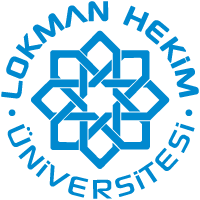| dc.contributor.author | Çayan, D. and Unur, E. and Nisari, M. and Patat, D. and Dağli, E. and Akalin, H. | |
| dc.date.accessioned | 2020-10-26T11:55:24Z | |
| dc.date.available | 2020-10-26T11:55:24Z | |
| dc.date.issued | 2020 | |
| dc.identifier | 10.9775/kvfd.2020.23873 | |
| dc.identifier.issn | 13006045 | |
| dc.identifier.uri | http://hdl.handle.net/20.500.12591/270 | |
| dc.description.abstract | Triclosan (TCS) is a broad spectrum antimicrobial agent showing its effect by deactivating the fatty acid synthesis of bacteria. The aim of this study was to investigate the effects of TCS on in vitro embryonic development in rats and to determine the levels of caspases 2, 7, 8, and 9 inducing cells to apoptosis through gene expression. According to the TCS dose added to the culture whole rat serum, 3 experimental groups and a control group were formed with each including 10 embryos. After 48 h culturing period, embryos were subjected to morphological scoring for developmental evaluation. The levels of caspases 2, 7, 8, and 9 were measured by performing gene expression on 40 embryos. Significant decreases were obtained in all parameters of morphological scoring in the experimental groups as the dose of TCS increased. While the caspase-2 level showed a significant decrease among the groups and was inversely proportional to the level of TCS, the caspase-9 level showed a significant increase among the groups and was directly proportional to the level of TCS. In conclusion, TCS was determined to cause apoptosis in the cells via the intrinsic pathway during pregnancy period and lead to embryonic growth retardation, which increased with increased dose of TCS. © 2020, Veteriner Fakultesi Dergisi. All rights reserved. | |
| dc.language.iso | English | |
| dc.publisher | Veteriner Fakultesi Dergisi | |
| dc.source | Kafkas Universitesi Veteriner Fakultesi Dergisi | |
| dc.title | The effect of triclosan on in vitro embryonic development in rat [Triklosanın in vitro embriyonik rat gelişimi üzerine etkisi] | |














